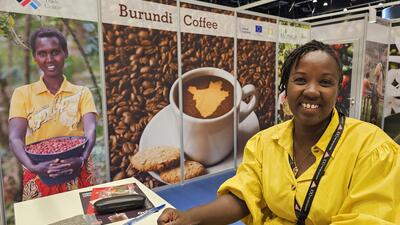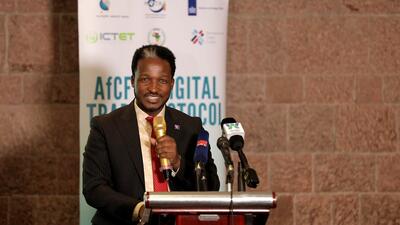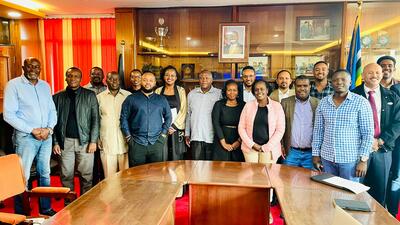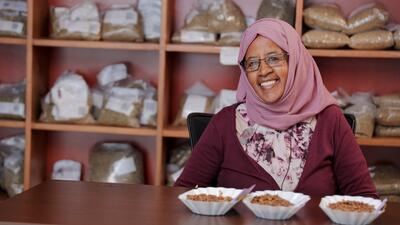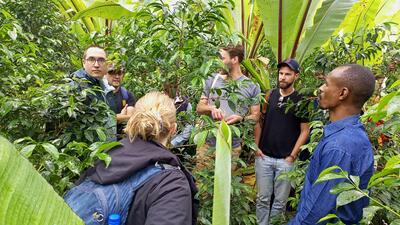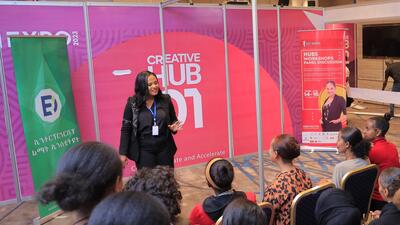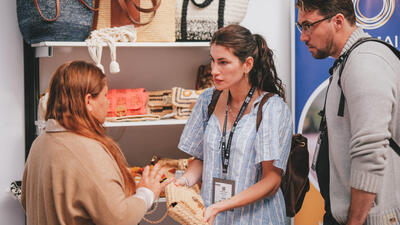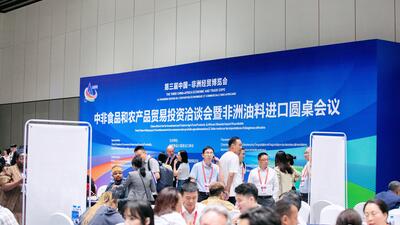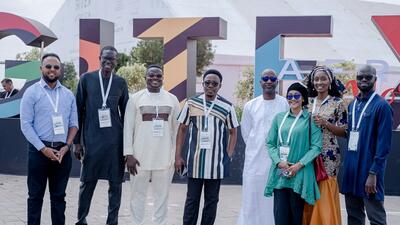Connecting 100 Traditional Weavers to the Export Market – ITC Access! Focal Point institution, CAWEE, secures over USD 200,000 in funding
The Center for African Women Economic Empowerment (CAWEE), one of ITC’s ACCESS! Focal Point institutions, recently secured funding of USD 218,570 from COMPETE/USAID to implement an innovative project – “Connecting 100 traditional Weavers to the Export Market”.
In Ethiopia, hand weaving is an important sub-sector, which is a significant employer of rural families in particular. The sub-sector also plays a strategic role in the economic development of the country with its strong linkage to the agricultural sector through the sourcing of raw cotton. In addition, the growing demand for hand-woven textile products both in domestic and international markets offers potential for small scale hand-loom weavers. Despite the growing demand and market opportunity, the weavers are mainly involved in producing traditional products and they are not usually connected to the export market. With limited market linkages, weavers have little or no information about other higher end market opportunities. Thus traditional weavers do not tend to get regular orders and miss out on having a continuous income with which they could improve their livelihood.
This being said, women involved in producing high-end hand-woven products are now trying to penetrate the export market but due to lack of capacity in supply are not in a position to respond to export demands and orders. It is with this challenge and need in mind that this project of linking 100 traditional weavers to the high end export market players was designed and is now being implemented.
The project plans to build on the existing traditional skills and train weavers to adapt to the production of export focused products for new and growing markets, with a focus on exports, i.e. from grass roots to high end stores. The project guarantees that, after the training, participants will be able to produce export focused products and their products will be connected to the export market, using existing exporters market outlets, both international as well as domestic, and also using new market outlets.
The project will be implemented by three organizations with CAWEE being the lead implementing organization. Two partner private companies, both owned and managed by a pioneer woman exporter in Ethiopia (Sara Garment Designers Manufacturer - the training arm of the project, and Muya Ethiopia – the export marketing wing of the project), where the owner & manger of those two companies is an ACCESS! Phase I trainee and is in the process of starting the ACCESS! Phase II business counseling program.
Following the implementation, the following results are expected to be achieved:
- The 100 traditional weavers (30% of them women) become qualified weavers capable of producing export focused products
- The income level of the targeted 100 weavers increases by 75%, a target which covers 700 - 900 household members
- Qualitative changes observed among the trained weavers in terms of changes in attitudes, behaviors, work ethics & discipline
- Increased capacity of the two project partner private companies – Sara Garment Designers & Manufacturers and Muya Ethiopia
- Capacity of CAWEE enhanced to scale up and implement market-driven value chain development projects through result based methodologies
- The culture of Private Public Partnership (PPP) with the involvement of civil society organization/NGO developed
- Increased technical, market-related knowledge disseminated among textile producers as a result of this particular project intervention
- The success stories of this particular project serve as reference for other potential projects to emerge
Considering its’ strategic position, the experience and also the network that it developed with its partners, also jointly working with the two private companies in export, CAWEE has full confidence that it can successfully implement the project and ITC looks forward to supporting them along the way.




